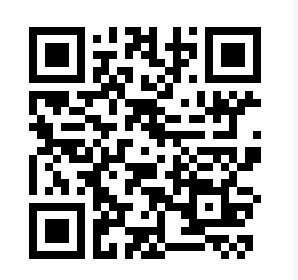In life we are sometimes confused as to where our responsibility ends and where another begins. This seemingly invisible line determines our actions on virtually any action they involves multiple people. If experience has shown me anything, everyone has their own view on where it is drawn. At DragonTamers we call this invisible line the “Line of Responsibility”. Our discussion here is really focused on folks who feel they are providing a large amount of effort toward something that in the end benefits someone else. Just how far does our moral responsibility go? More importantly, where is it really most effective to draw this line.
The first thing we need to talk about is practical and actual control. Practical control is defined as the range which you have at least partial influence, while Actual control is the range where you have absolute influence. Please note that only ONE person has Actual control at any given time, and in many cases, no one will have Actual control. When more than one person can influence a situation, then some or all of them have Practical Control
The next thing to discuss on this topic is Vested Interest or Share Stake. Basically this is about who will benefit, and how much in the outcome of a given situation. Sometimes this benefit is a little harder to see because it may be based on invisible or intangible items. For example, a parent has a Share Stake in the success of their children because of the successful propagation of their genes on to the next generation. Clearly the more children a person has, the less critical this Share Stake becomes for any single child. However an intangible Share Stake maybe that a person has invested so much time, money, effort, and emotion into the project, that they would feel a terrible loss should they fail.
Actual Control, or rather the range of one’s Actual Control will define the point where your responsibility ends, but practical control can and should define where responsibility begins. For example, a high student who hopes to attend collage one day has no Actual Control on this until after high school, but in the years leading up to graduation they can influence this (Practical Control) out come by obtaining high grades and researching grants and scholarships. So as you see, at the point that someone can start to influence an outcome, that will be where their responsibility begins.
Using the collage bound analogy again; we can apply this to the parent and realize that that the parent never has Actual Control. They do have practical control during high school and the collage years, but they must accept that only the student ever has Actual Control on attending collage.
Where the confusion comes in is that folks allow factors such as one’s Share Stake and their range of Practical Control enter into the picture as factors. The Share Stake for a parent maybe the success of their children and the standard of living for the grandchildren one day. Additionally the parents have Practical Control because the offer a means of support and funding for collage to the child. In the end however ONLY the child can choose to attend college.
Using the above example, the parents Line of Responsibility would be drawn on the day the child graduates high school or turn 18 years of age. Why, because at 18 years of age in the US, the parent no longer has any Actual Control over the child. It is also the age where the parent has Actual Control over whether the child is permitted to continue to reside within the home.
It is health to discuss these concepts so as a family with underage children so that everyone can honestly and practically get a handle on expectation of both the child and the parent on what will happen after graduation. This should be done well in advance of the parents Line of Responsibility. Families should enter into an agreement about support during collage, as well as what will happen should the child fail to complete high collage, and or drop out collage. They should consider situation that may occur such as child marriage or child pregnancy, or parent illness, death, or job loss. This agreement should include a clear cut understanding of each side expectations and what the likely outcome will be if these expectations are not met. For example, if the child does not attend college, how long can they remain in the home after high school?
In summary, you should realize at this point that once you no longer have Actual Control, you are no longer responsible for the outcome. As a whole our homes, and our lives in general would be greatly enhanced if law makers, parents, and children all accept this truth. Once accepted everyone can move on to a more meaningful relationships that includes gratitude and respect. This post goes hand in hand with Helping vs Enabling, please take some time and look that over as well.
I look forward to your comments…



